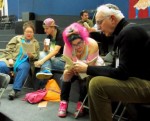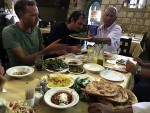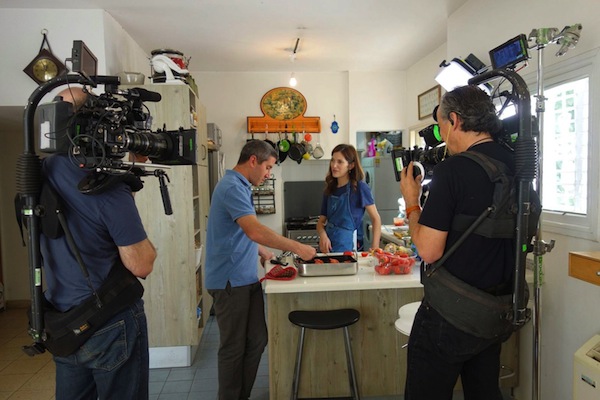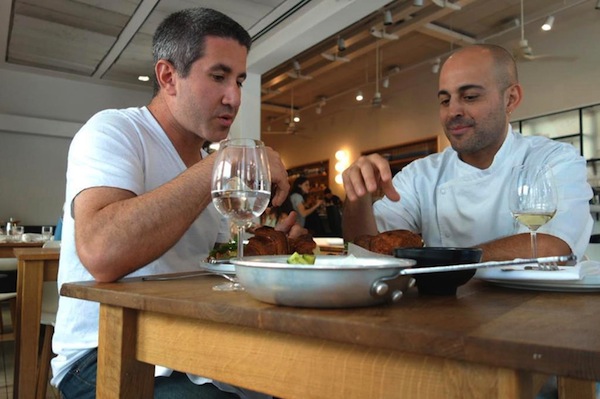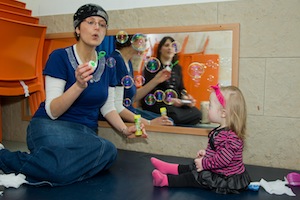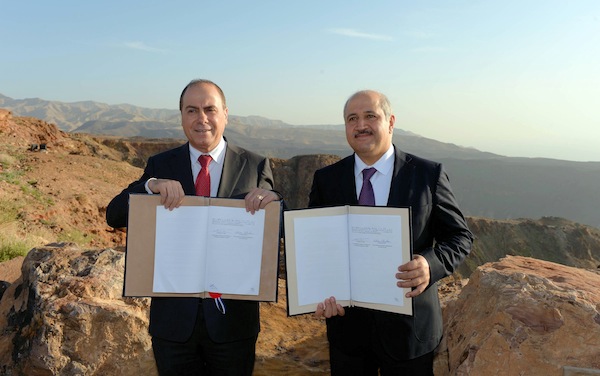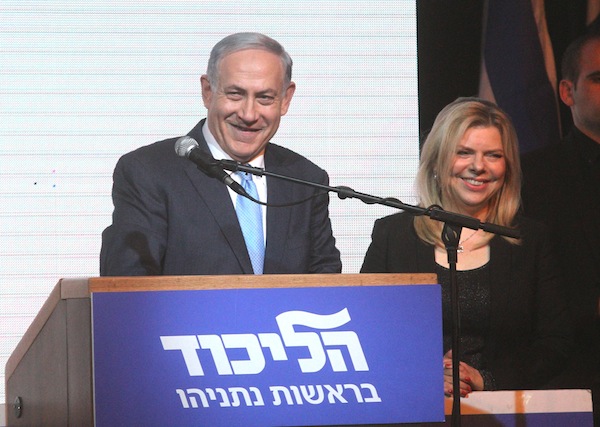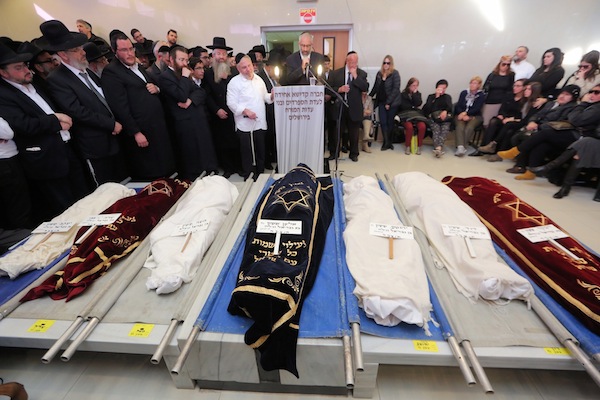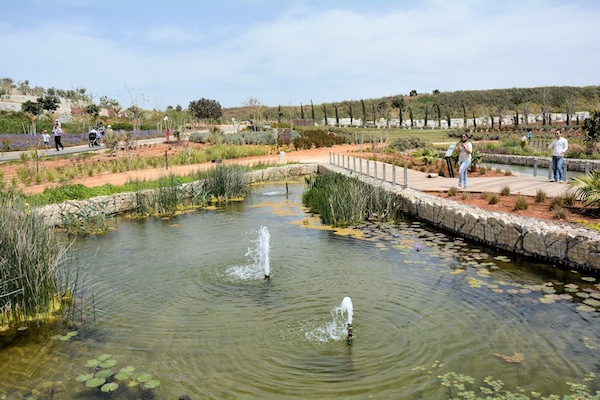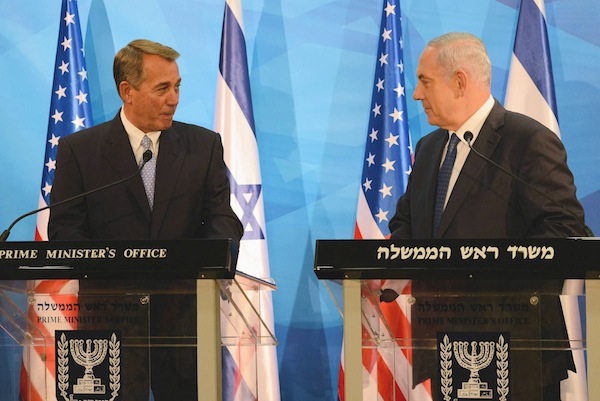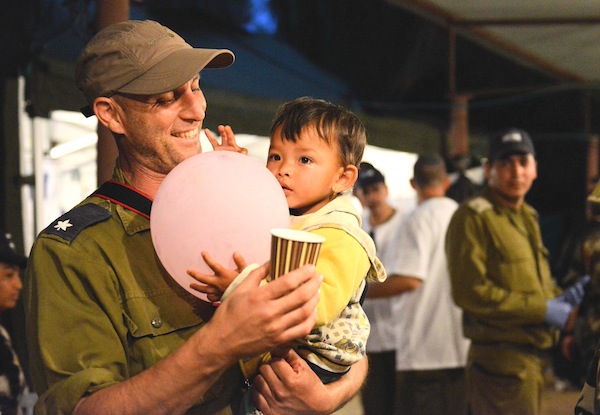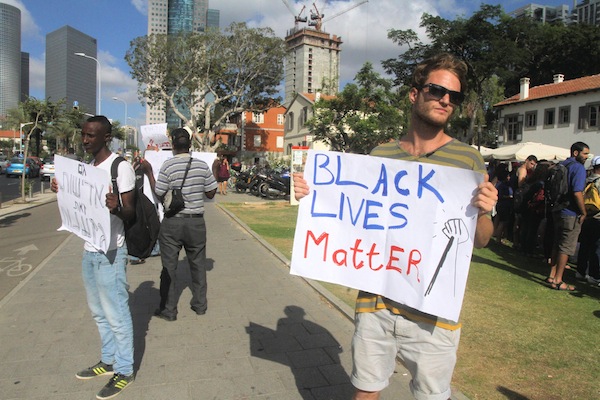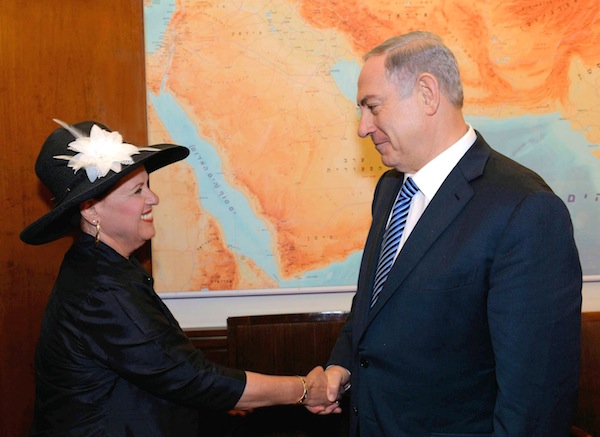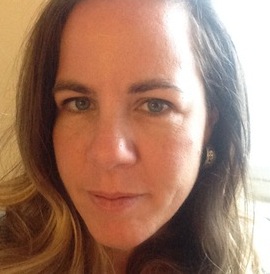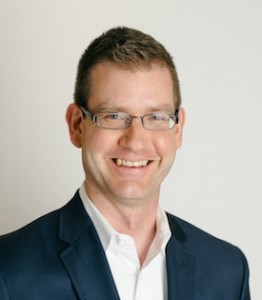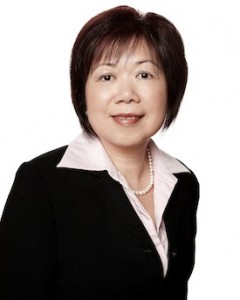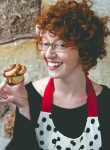From left to right, are Naomi, Michelle and Max Dodek with Gil Lewinsky in Abbotsford. Michelle is holding a one-day-old Jacob sheep. (photo by Jenna Lewinsky)
A couple living in Abbotsford is gaining international attention for their unusual quest. They want to return their flock of Jacob sheep to the breed’s ancestral home – Israel.
After visiting Gil and Jenna Lewinsky at the farm where they rent a barn and outdoor space for their sheep, there is no doubt that these modern Jewish shepherds are committed to taking their flock to Israel. Once there, the couple intends to set up a heritage park for visitors to connect with this aspect of ancient biblical history.
These sheep, according to the Lewinskys, are the descendants of Jacob’s original flock. Sheep are discussed in Genesis 30:32, when Jacob negotiates with Laban to keep the speckled and spotted offspring of Laban’s sheep in payment for his 14 years of service to Laban. As Laban has managed to trick Jacob before, most famously by switching brides and having him marry Leah instead of Rachel, he thinks he’s getting the better deal here, as well. However, the Torah explains the special techniques Jacob employs to grow a strong, large speckled flock, leaving the weaker, solid-colored sheep for Laban. It is the first recorded case of selective breeding and, apparently, it worked.
“People know that Jacob fathered the Jewish people but they don’t know that he also ‘fathered’ a breed of sheep,” said Gil. He also explained that these sheep followed Jacob’s family into Canaan and eventually Egypt. While the Children of Israel returned to Canaan after centuries of slavery, it seems that these sheep did not accompany them. They went west and ended up, many centuries later, in England, where they were bred extensively. A few of the “heirloom breed,” those unaltered from their original ancient Syrian physiology, have made it to hobby farmers in Canada. Not one lives in Israel.
The Lewinskys feel this is a problem that needs to be solved. “God put it into our hearts to bring the Jacob sheep back to Israel,” said Jenna in an interview. In response, she and her husband have formed a nonprofit organization called Friends of the Jacob Sheep with a stated mission to bring the animals back to Israel.
Friends of the Jacob Sheep plans to repatriate the sheep from Abbotsford to the Golan Heights, where the Lewinskys hope to open up a heritage park so that the biblical sheep can be seen in Israel and be put to their original purposes for the Jewish people.
According to Gil, Jacob sheep in ancient times were used in every aspect of life, including using the wool for religious clothing such as tallitot, the skin for leather for tefillin or parchment to make Torahs and mezzuzot, as well as for food and Temple sacrifices. Of course, the horns were also used to make shofars. This breed of sheep has an advantage in the area of shofar making because both male and female Jacob sheep are commonly found with four horns and can grow up to six at one time.
While the Lewinskys are very dedicated to their mission, there are a number of stumbling blocks in the way of their plan. In order to export animals to another country, many policies have to be followed. Ever determined, they have lobbied both the Israeli and Canadian governments to find a way to fast track a trade agreement that would enable the sheep to return to Israel. Federal Trade Minister Ed Fast visited the Lewinskys’ flock in early August this year. The Lewinskys describe Fast as a strong supporter of the state of Israel and they hope to use this contact to further their plans.
“We have around 50 sheep now and, when we reach 80, we will be ready to take them to Israel,” said Jenna. Since my visit to the farm, the flock has increased to about 70.

“Our new flock are from the Okanagan and from Cabri, Sask.,” said Gil in an email to the Independent. “The flock from Saskatchewan trace back to the first four Jacobs that were imported from the U.K. to Canada at the Assiniboine Zoo in Winnipeg. They retain their primitive confirmation.”
The increase in numbers is due in part to the Lewinskys’ continuing efforts to acquire heirloom Jacob sheep from farmers in Canada and the United States, and in part to a good spring, with many of their ewes birthing adorable lambs. Jenna and Gil have investigated and negotiated with an airline that specializes in transportation of livestock to transport the flock as soon as they can wade through the red tape currently preventing the exportation of the animals and, of course, once they have raised the money to do so.
By chance, one sheep made it onto Abbotsford Mayor Henry Braun’s Facebook page, and Gil has used his experience as a journalist to get the word out about these sheep all around the world, with the story being picked up in news outlets from Israel Vision TV to Scotland’s Jewish Telegraph. The couple said they are applying for grants from a number of agencies and making connections with both Jewish and non-Jewish communities for support.
For more information on Friends of the Jacob Sheep, visit their website (friendsofthejacobsheep.weebly.com) or like them on Facebook to keep abreast of the latest developments.
Michelle Dodek is a freelance writer living in Vancouver.






